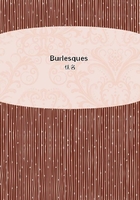
第21章
Introduced by the Duchess of Fitzbattleaxe, along with her Grace's daughters, the Ladies Gwendoline and Gwinever Portcullis, the heiress's regal beauty quite flung her cousins' simple charms into the shade, and blazed with a splendor which caused all "minor lights" to twinkle faintly. Before a day the beau-monde, before a week even the vulgarians of the rest of the town, rang with the fame of her charms; and while the dandies and the beauties were raving about her, or tearing her to pieces in May Fair, even Mrs.
Dobbs (who had been to the pit of the "Hoperer" in a green turban and a crumpled yellow satin) talked about the great HAIRESS to her D. in Bloomsbury Square.
Crowds went to Squab and Lynch's, in Long Acre, to examine the carriages building for her, so faultless, so splendid, so quiet, so odiously unostentatious and provokingly simple! Besides the ancestral services of argenterie and vaisselle plate, contained in a hundred and seventy-six plate-chests at Messrs. Childs', Rumble and Briggs prepared a gold service, and Garraway, of the Haymarket, a service of the Benvenuto Cellini pattern, which were the admiration of all London. Before a month it is a fact that the wretched haberdashers in the city exhibited the blue stocks, called "Heiress-killers, very chaste, two-and-six:" long before that, the monde had rushed to Madame Crinoline's, or sent couriers to Madame Marabou, at Paris, so as to have copies of her dresses; but, as the Mantuan bard observes, "Non cuivis contigit,"--every foot cannot accommodate itself to the chaussure of Cinderella.
With all this splendor, this worship, this beauty; with these cheers following her, and these crowds at her feet, was Amethyst happy? Ah, no! It is not under the necklace the most brilliant that Briggs and Rumble can supply, it is not in Lynch's best cushioned chariot that the heart is most at ease. "Que je me ruinerai," says Fronsac in a letter to Bossuet, "si je savais ou acheter le bonheur!"With all her riches, with all her splendor, Amethyst was wretched--wretched, because lonely; wretched, because her loving heart had nothing to cling to. Her splendid mansion was a convent; no male person even entered it, except Franklin Fox, (who counted for nothing,) and the duchess's family, her kinsman old Lord Humpington, his friend old Sir John Fogey, and her cousin, the odious, odious Borodino.
The Prince de Borodino declared openly that Amethyst was engaged to him. Crible de dettes, it is no wonder that he should choose such an opportunity to refaire sa fortune. He gave out that he would kill any man who should cast an eye on the heiress, and the monster kept his word. Major Grigg, of the Lifeguards, had already fallen by his hand at Ostend. The O'Toole, who had met her on the Rhine, had received a ball in his shoulder at Coblentz, and did not care to resume so dangerous a courtship. Borodino could snuff a bougie at a hundred and fifty yards. He could beat Bertrand or Alexander Dumas himself with the small-sword: he was the dragon that watched this pomme d'or, and very few persons were now inclined to face a champion si redoutable.
Over a salmi d'escargot at the "Coventry," the dandies whom we introduced in our last volume were assembled, there talking of the heiress; and her story was told by Franklin Fox to Lord Bagnigge, who, for a wonder, was interested in the tale. Borodino's pretensions were discussed, and the way in which the fair Amethyst was confined. Fitzbattleaxe House, in Belgrave Square, is--as everybody knows--the next mansion to that occupied by Amethyst. Acommunication was made between the two houses. She never went out except accompanied by the duchess's guard, which it was impossible to overcome.
"Impossible! Nothing's impossible," said Lord Bagnigge.
"I bet you what you like you don't get in," said the young Marquis of Martingale.
"I bet you a thousand ponies I stop a week in the heiress's house before the season's over," Lord Bagnigge replied with a yawn; and the bet was registered with shouts of applause.
But it seemed as if the Fates had determined against Lord Bagnigge, for the very next day, riding in the Park, his horse fell with him;he was carried home to his house with a fractured limb and a dislocated shoulder; and the doctor's bulletins pronounced him to be in the most dangerous state.
Martingale was a married man, and there was no danger of HIS riding by the Fitzbattleaxe carriage. A fortnight after the above events, his lordship was prancing by her Grace's great family coach, and chattering with Lady Gwinever about the strange wager.
"Do you know what a pony is, Lady Gwinever?" he asked. Her ladyship said yes: she had a cream-colored one at Castle Barbican;and stared when Lord Martingale announced that he should soon have a thousand ponies, worth five-and-twenty pounds each, which were all now kept at Coutts's. Then he explained the circumstances of the bet with Bagnigge. Parliament was to adjourn in ten days; the season would be over! Bagnigge was lying ill chez lui; and the five-and-twenty thousand were irrecoverably his. And he vowed he would buy Lord Binnacle's yacht--crew, captain, guns and all.
On returning home that night from Lady Polkimore's, Martingale found among the many billets upon the gold plateau in his antichambre, the following brief one, which made him start--"DEAR MARTINGALE.--Don't be too sure of Binnacle's yacht. There are still ten days before the season is over; and my ponies may lie at Coutts's for some time to come.
"Yours, "BAGNIGGE.
"P. S.--I write with my left hand; for my right is still splintered up from that confounded fall."III.